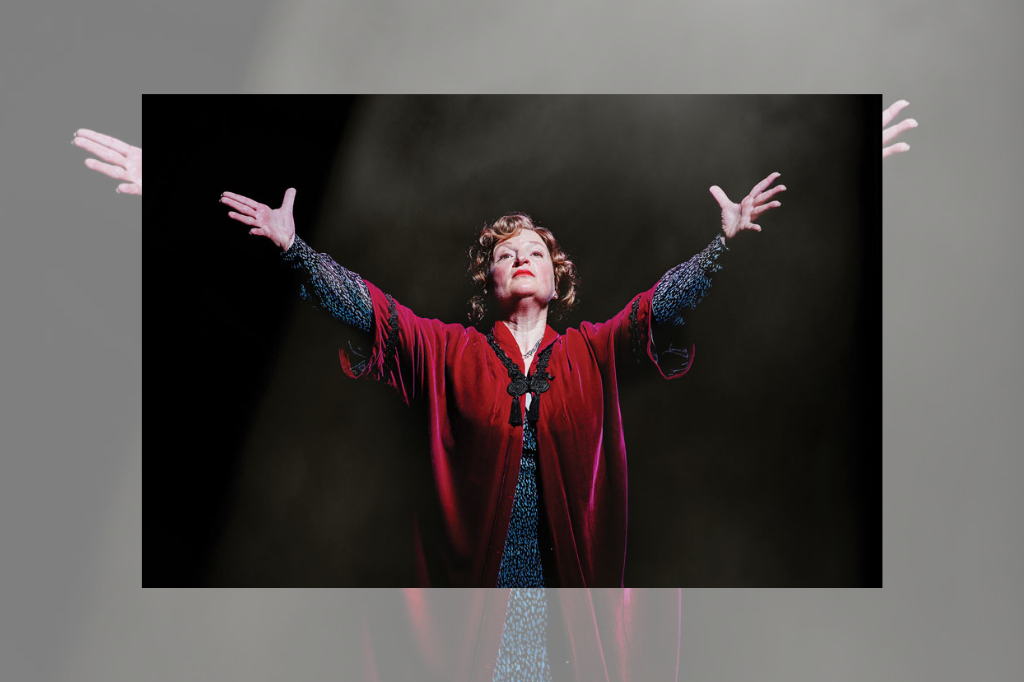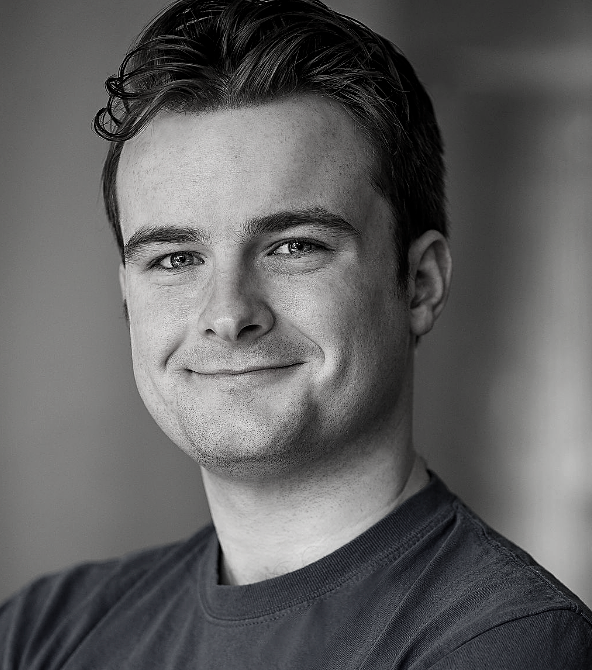REVIEW: Gypsy at the Shaw Festival
A dancer stashes a ghost light on a darkened stage. A wispy glow bursts forth, ushering in those all-too-vibrant years when vaudeville flourished and the stock market boomed. A lushly rendered overture reverberates through the well-tramped boards, a séance for the discarded mothers and theatrical ghosts of yesteryear.
Gypsy, an old American entertainment about old American entertainment, surveys the effects of time on unfulfilled dreams. The Jule Styne (music)-Stephen Sondheim (lyrics)-Arthur Laurents (book) musical has aged as well as any other of its era because it’s closer to a play with music than a traditional musical comedy. This strong dramatic skeleton makes it a perfect choice for the Shaw Festival, where it’s playing until October in a hauntingly clear production directed by Jay Turvey.
The show is loosely based on the memoirs of burlesque artist Gypsy Rose Lee, who we meet under the name Louise (Julie Lumsden). Since childhood, the soft-spoken Louise has toured an irritating vaudeville act around the country. In it, she’s stuck with degrading ensemble roles while her precocious sister June (Madelyn Kriese) plays the lead. Gypsy follows Louise’s winding journey from side to main character.
But neither June nor Louise are the show’s true centre. That would be their obsessive stage mom Rose (Kate Hennig), a fantastically meaty role that’s been played by such legends as Ethel Merman, Patti LuPone, and Bernadette Peters. The hyper-controlling Rose is director, choreographer, stage manager, producer, and military general of the vaudeville act.
Due to Rose’s lopsided treatment of June and Louise, her relationships with both of them are rather sour. The heart of Gypsy’s first act is this mother-daughter-daughter triangle; but June is mostly absent from its second, making Rose and Louise the focus. There’s also a lightly developed romantic subplot between Rose and too-kind theatrical agent Herbie (Jason Cadieux).
The opening image of the ghost light is key to Turvey’s production, which is set backstage at a theatre. This setting highlights Rose’s proclivity for performance: though her daughters are the ones on stage, Rose inserts herself into the act by interrupting rehearsals and offering pre-performance disclaimers at auditions. I even feel Rose may be the theatrical spirit the opening ghost light is attempting to ward off — an ever-present spectre whose age remains static though her children grow old. Through these subtle engagements with meta-theatricality and the supernatural, the production gestures towards a hauntology of the American theatre.
Hennig wholly embodies Rose’s unchangingness. While there’s an ocean of regret under her surface, Hennig rarely lets it out. Instead, it’s all about suppression: when this Rose speaks, she pushes away her doubts ferociously and impenetrably. The only cracks in resolve are a few long, emotionally-charged silences in which she struggles to stay composed but sadness pokes through. Even Rose’s music, which frequently returns to old melodies, provides an outlet for this steadfastness; her final song, the iconic “Rose’s Turn,” ends with a sevenfold repetition of the same two-word phrase. (The program says Hennig was the alternate Rose in the 2005 Shaw production, a wonderfully Gypsy piece of trivia.)
The production moves with a surprisingly contemporary fluidity. The back wall of Cory Sincennes’s malleable set features a stage door, contributing to Turvey’s meta-theatrical framing. Further downstage, Sincennes defines the scenes’ literal locations quickly and clearly. A towering arch that rotates on a center-stage turntable helps this along — one side has the ornate engravings of a vaudeville theatre, while the more flexible other side pivots from a grey brick wall to a dressing room shelf. Other than the arch, the furniture is fairly sparse. This relative openness decentres the show’s shifting temporality in favour of emphasizing the psychological. It also has the creepy effect of making all the different vaudeville theatres feel the same.
In contrast to the cinematic slickness of the set, the music is gloriously old-school. Music director Paul Sportelli leads the 14-piece orchestra through Styne’s punchy, chromatic-littered score with aplomb, the fullness of their sound a transportive and welcome contrast to the shrinking bands of most contemporary musicals.
Kevin Fraser’s warm lighting is oriented towards realism, so its few overtly theatrical moments provide exciting contrast. A small dosage of haze draws attention to the height of the Shaw Festival Theatre; the light bounces around like a ghost in the rafters.
Overall, in fact, this is very much a show that unfolds in the margins. Hennig’s sublime silences, the supernaturality, Sincennes’s airy set, Fraser’s glowing haze, the orchestra’s reverberations: these are subtextual intangibles, atmospheric, gradually blossoming carriers of Rose’s woe. This Gypsy is not vicious and explosive but quietly mournful.
Gypsy plays at the Shaw Festival Theatre through October 7. Tickets are available here.
Intermission reviews are independent and unrelated to Intermission’s partnered content. Learn more about Intermission’s partnership model here.















Comments